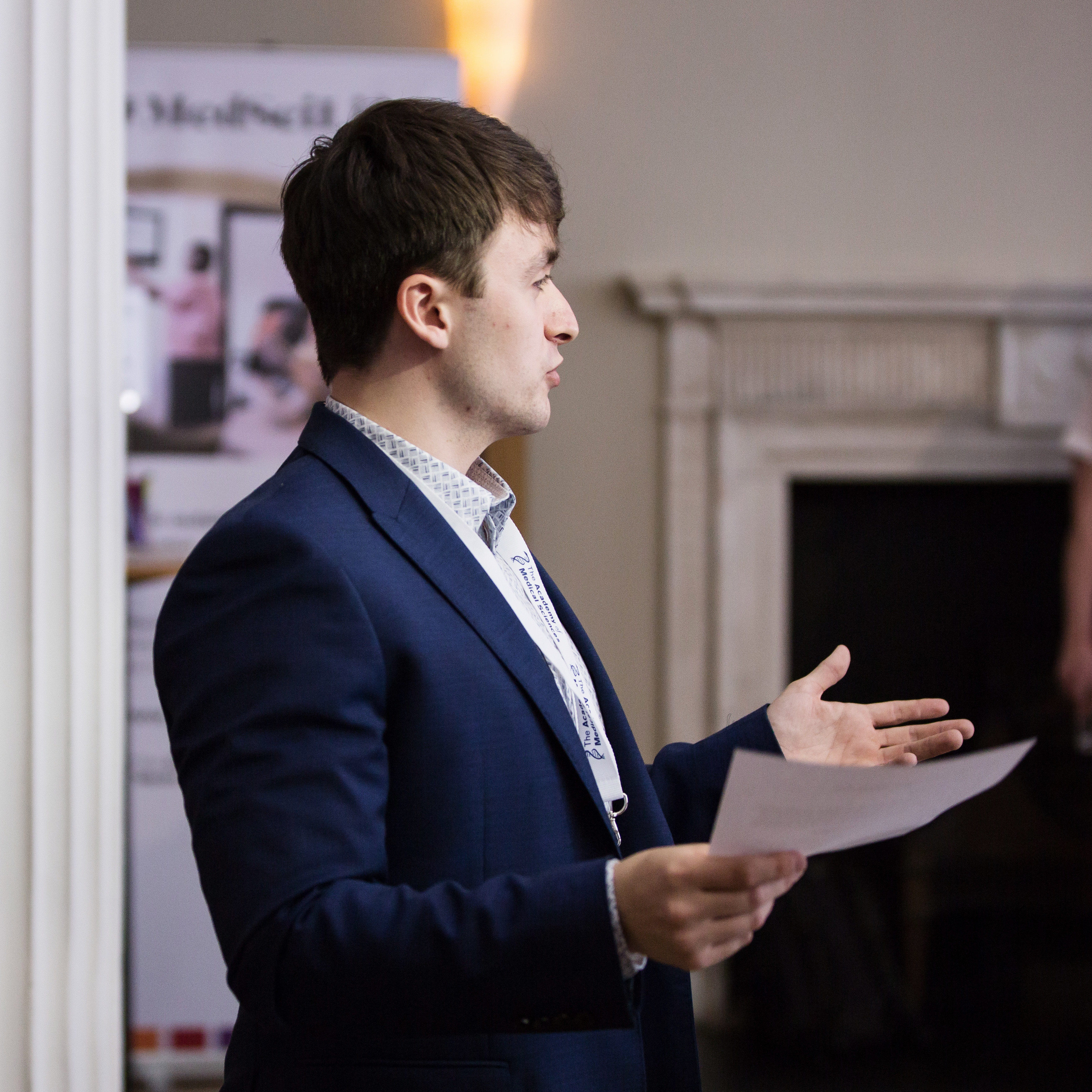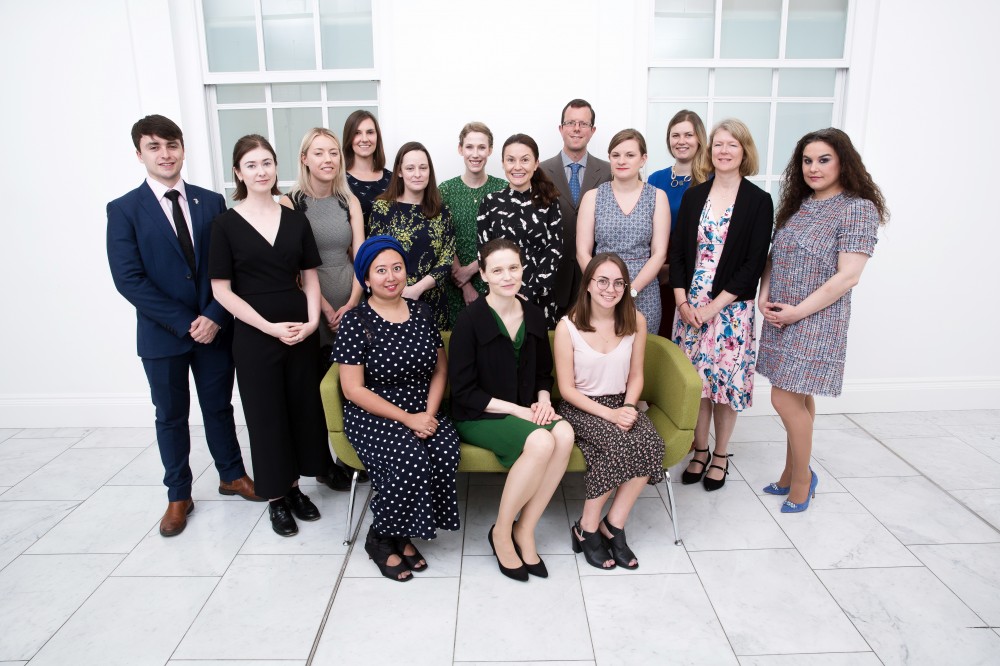
Name: Andy Stone
Institution: University of York
Connection to the Academy: BBSRC-funded Grants and Programmes intern in 2019
Tell us about your PhD and what stage you were in when you did your internship.
I was in the 3rd year of my PhD, studying the different functions of heterogeneous bone marrow stromal cell populations.
What made you apply to the scheme? How was the application process?
The internship looked like it would allow me to experience the world outside academia while also still strengthening my CV if I wanted to stay in research. I was particularly looking forward to learning about how grant processes operate, and to expanding my professional network across a variety of sectors.
The application process was enjoyable and made me really think about the job I would be doing. The interview was relaxed and friendly and I heard back from the Academy very quickly.
What did you work on during your internship?
One of the great features of the Grants and Programmes internship was the diversity of projects I was able to get involved in. From the start, I felt like a valued member of the team and I was even trusted to drive my own projects.
- Grants
In the Grants team, I was able to get involved in the administration of a number of different grants. I identified peer reviewers for Starter Grants for Clinical Lecturers and Newton International Fellowships and I was lucky enough to sit in on three grant panels during my internship. Being able to sit in on the panels of senior researchers as they discussed applications gave me an amazing insight into what makes a good grant application. When some of the reviewers I identified were complimented by the panel, it felt like a great achievement.
- Career Development Programmes
In the Career Development Programmes team, I worked on events and communications projects. This included leading on the redesign of a newsletter for SUSTAIN, where I worked with an external design agency. I also helped with the planning and delivery of events, including the Resilience in Research event in Birmingham and the INSPIRE sharing conference. The most enjoyable and rewarding project I worked on was a networking event at the Springboard awardee meeting. I consulted with the team and developed a system where awardees were able to meet representatives from publishing, industry and funders, as well as each other. I selected and invited the representatives, which meant I got to know high-level stakeholders from across the biomedical research sector. The session went smoothly and it was really satisfying to see the awardees engage in lively discussions with the invited representatives. My project management skills and confidence in engaging with high-level stakeholders have definitely improved as a result.
- Careers Policy
In the Careers Policy team, I attended high-level meetings with the other National Academies (the Royal Society, British Council and Royal Academy of Engineering), and the Medical Research Council. Attending these meant that I learnt about the funding landscape in the UK. I also helped with scoping for potential Academy activities and writing summaries of documents for the team to read.
How did you find the experience?
I loved my time at the Academy. It has helped me think about the sort of career I would like to pursue in the future and made me more aware of careers in research-supporting organisations. I also made some amazing friends in my time there and everyone was extremely welcoming from the very beginning.
Did the internship give you any skills or knowledge that you will use in your PhD or future career?
The internship gave me the opportunity to develop a variety of skills. These include project management, which I learned through working in the programmes team. I also developed a much better understanding of the funding landscape in the UK, and what makes a good grant application. Another great feature of the work I did with the Academy was that I got to meet a variety of professionals from a number of sectors surrounding research, as well as meeting Academy Fellows and getting advice on how to progress my academic career. I made lots of new professional contacts which will hopefully prove useful.
Do you have any advice for someone who’s thinking of applying for the internship?
I can’t recommend working for the Academy on this internship enough. If you’re interested in staying in research, then it gives you a fascinating insight into how research is funded. I learned so much from the peer review process and being able to sit in on grant panel discussions. This experience has given me much greater confidence in developing my own academic career. The internship is equally beneficial if you are looking outside of research; you get to work as part of a great team in a lively organisation and develop vital skills such as project management.

Andy Stone (left) and the Grants, Programmes and Careers Policy team.